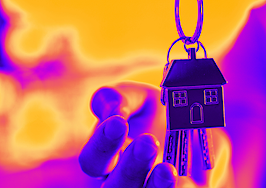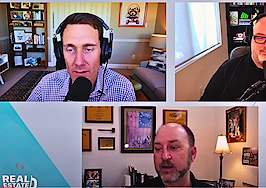Most homeowners are delighted by the huge surge in their home values but may be unaware those increased values may result in significantly higher property taxes, especially in states where valuations adjust based on actual values. What steps can you take to help unsuspecting homeowners avoid being forced from their homes?
A good friend recently contacted me about options for selling his rental property and doing a 1031 exchange. His reason: “I need to sell this property before my property taxes outrun my cash flow.”
Soaring food prices, fuel costs and inflation have caused the U.S. inflation rate to increase to 5.4 percent, though some experts put it as high as 12 percent. The bottom line is: Increased inflation translates into less purchasing power for consumers and less ability to pay higher property taxes.
How bad is it?
To illustrate this point, the property tax bill on the house we sold in 2015 was $18,000. Due to Austin’s soaring prices, our 2021 tax bill would have been $26,354. If our property value stayed the same through 2025, out property tax bill would be $38,585.
High costs, high taxes and high inflation hit homeowners in all price ranges, but they’re especially hard on those with fixed or limited sources of income. This is especially troubling for those homeowners who will be exiting forbearance programs and are already struggling due to pandemic-related losses of income.
The vultures are already lurking
I recently received this email advertising a webinar on how to profit from homeowners who are behind on their payments.
The expiration of the (foreclosure) will create a flood of foreclosures and bank-owned houses the likes of which we’ve never seen. With 3.7 million Americans not making their house payments, there’s a flood of foreclosed homes set to hit the market. This is your chance to collect solid payouts from snapping up these houses and selling them for a nice profit.
According to the Washington Post, over 2 million homeowners are delinquent on their mortgage. Research conducted by the New York Federal Reserve revealed that 70 percent of the 2.2 million borrowers who remain in forbearance programs are not making any payments.
“That means the serious delinquency rate, which is defined as payments that are over 90 days late, would shoot up from 0.9% currently to 3.8%,” according to CNBC.
Outsmart the vultures and help owners keep their homes
If a homeowner is in financial trouble and you can help them keep their home, make every effort to do so. This will buy your business more good will and referrals than you can possibly imagine. Moreover, if they do have to sell, they’ll list with the agent who helped them try to keep their home.
Depending on how far behind borrowers are on their payments and how much their property tax bills are increasing, here are five ways you can help homeowners stay in their homes.
1. Combine households or rent out part of your home
Due to the COVID-19 pandemic, an increasing number of families have adult children living at home or have large houses that could accommodate another family member or a renter. Many people are happy to pay $500 to $1,000 per month to share a home rather than live in a one-bedroom apartment.
That extra $500 or more per month can go a long way to covering an increase in property taxes. By the way, if their adult children are living with them and working, they should make them pay rent or move!
2. Be ruthless about cutting unnecessary expenses
During the great recession, we really didn’t need two cars. Not only did we get a good price for the car (which would cover several years of tax increases), the savings on insurance and repairs were substantial as well.
If the homeowners go out to eat several times per week, have subscriptions or apps they’re paying for but not using, or are overpaying on their insurance, a $250 savings per month can translate into $3,000 extra in their checking account at property tax time.
An excellent resource for managing their expenses is TrueBill. A quick way to identify subscriptions that could be cancelled is to search for charges on your credit card bill that end with $99.00 or 99 cents.
3. Obtain a home equity loan
While this is an option, the homeowner will often pay more over time to the lender than the actual tax increase. Nevertheless, the extra time allows the homeowner to come up with additional options for staying in their home.
To illustrate how this works, assume the homeowner’s property taxes will increase $2,000 per year over the next 10 years. That would be a total of $30,000 over 5 years. If the owner were to obtain a home equity loan for $30,000 at 4.5 percent amortized for 15 years, the payments would be $229.50.
Here’s what the two payment schedules would be for each scenario:
During the first five years, the owner will make payments on the home equity of that are $16,230 less than if they had paid the tax increases each year.
Please don’t confuse a home equity loan with a home equity line of credit. A home equity line of credit allows the borrower to withdraw the amount of money as they need it. When I looked at the Bank of America’s disclosures for their home equity lines of credit, their variable had a cap of 24 percent a year! This is risky choice, especially when there are better options.
4. Home Equity Conversion Mortgages (HECM) for seniors (reverse mortgage)
According to U.S. Department of Housing and Urban Development, “The only reverse mortgage insured by the U.S. Federal Government is called a Home Equity Conversion Mortgage (HECM) and is only available through an FHA-approved lender. The HECM is FHA’s reverse mortgage program that enables homeowners age 62+ to withdraw a portion of their home’s equity.”
What makes these loan programs different is the borrower has zero payments as long as they live in the property. It’s also important to be aware that these loans are negative amortization loans where the principal and interest are deducted from the homeowner’s equity at the time or sale or when the owner dies.
According to the California Department of Insurance:
A reverse mortgage is a special type of home loan that lets you convert a portion of the equity in your home into cash. The equity that you built up over years of making mortgage payments can be paid to you.
However, unlike a traditional home equity loan or second mortgage, HECM (HUD Equity Conversion Mortgage) borrowers do not have to repay the HECM loan until the borrowers no longer use the home as their principal residence or fail to meet the obligations of the mortgage.
You can also use a HECM to purchase a primary residence if you are able to use cash on hand to pay the difference between the HECM proceeds and the sales price plus closing costs for the property you are purchasing.
To be eligible for a FHA HECM, the FHA requires that you be a homeowner 62 years of age or older, own your home outright, or have a low mortgage balance that can be paid off at closing with proceeds from the reverse loan, and you must live in the home.
When the borrower dies, the loan becomes due and payable. The heirs will have to pay the full balance or 95 percent of the loan amount, whichever is less. If they want to keep the home, they have the option of refinancing.
5. An exciting new option: shared appreciation mortgage companies
A shared appreciation mortgage allows homeowners to give an investor a small ownership stake in their property in exchange for a pre-determined amount of the future equity at the sale or after a specified amount of time.
Investors typically offer between 5 to 20 percent of the home’s value, and the homeowner continues to make the same payments. This is not a loan, so there are no loan payments, although origination fees run between 2.5 to 3 percent.
For example, on a $300,000 home, the investor might advance the owner 10 percent ($30,000) in exchange for 20 to 25 percent of the future equity. The investor, like the seller, shares in both increases and decreases in the value of the property.
Visit Investopedia to learn more details about these types of mortgages as well as the website’s top four recommendations for companies that are currently providing these programs (Hometap, Noah, Point and Unison).
How to identify and market to struggling homeowners
To locate owners of distressed properties, check the public records, visit foreclosure.com, or obtain a targeted list of owners who are still in forbearance or are delinquent from REISource.com for about 10 cents per name.
Next, identify what type of marketing campaign you want to do — print, digital, on the social media, YouTube etc. Your messaging asks this simple question:
Are you or someone you know facing foreclosure or being forced to sell due to higher taxes and you still want to stay in your home?
Assuming they answer that question “yes,” here are three different calls to action:
- Contact me at 800-555-1212 to discover what they can do to keep their home.
- Click here to receive our special report that explains five different options to help struggling homeowners keep their home
- Click here to view our video: “Five ways distressed sellers can keep their home.”
Always make sure they register with their contact information before sending them the report or the link to the video and follow up quickly to determine how you can be of assistance. Remember, the first agent they meet with face-to-face when they’re ready to list is normally the one they will hire.
Again, do everything you can to help financially challenged homeowners stay in their homes. If it works, the family you help will be extremely grateful and if not, you’re the agent who will be most likely to obtain the listing if they decide to sell.
Bernice Ross, President and CEO of BrokerageUP and RealEstateCoach.com, is a national speaker, author and trainer with over 1,000 published articles. Learn about her broker/manager training programs designed for women, by women, at BrokerageUp.com and her new agent sales training at RealEstateCoach.com/newagent.













